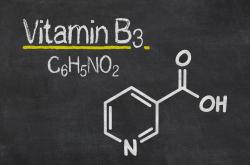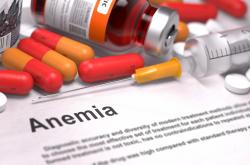Copper Deficiency and its Effect on Fatigue
If you’re suffering from fatigue and the levels of your most well-known vitamins and minerals test within the normal range, your problem could involve a trace mineral - you may suffer from copper deficiency.
As frustrating as fatigue can be for those who suffer its effects, identifying the source of that exhaustion can be just as maddening. Doctors who are attempting to determine the cause of a patient’s fatigue generally focus on other potential medical conditions, and possible deficiencies in things like iron, vitamin D, and folic acid. Often times, trace minerals like copper get overlooked in that process. That can be a mistake, since copper deficiency can cause a variety of health problems and constant fatigue.
What is Copper and How Does it Benefit You?
Copper may seem like an odd mineral to find in your body, but it’s there – and it is critical for your health. It helps to develop strong tissue, aids in the production of energy at a cellular level, and regulates blood volume. Despite all that, it remains a trace mineral in the human body.
But its small presence is belied by its outsized influence on health. It is a major source of antioxidant benefits, providing invaluable protection for the nervous system. At the same time, it ensures the integrity of the bones and muscle tissues by manufacturing the collagen needed by the body.
Its activities in the area of energy, however, are where it really impacts how we feel. It is essential for enabling iron to perform its role in the creation of red blood cells, and thus helps to stave off anemia. It also works to convert carbohydrates into useful energy in the cells – energy that the body needs to perform even the most basic tasks. When its levels are insufficient to fulfill these roles, the body’s energy levels end up being too low to meet its basic needs.
How Do You Know if You Suffer from Copper Deficiency?
When copper levels are deficient, fatigue invariably occurs. Many of these fatigued patients exhibit all the normal symptoms associated with anemia as well, and most actually suffer from that condition. Low copper levels can also lead to increases in cholesterol, which can create a variety of health risks. Additionally, patients can suffer an increase in infections, as well as hair loss, and circulatory issues.
Of course, many of these symptoms can be the result of other vitamin or mineral deficiencies, as well as a whole host of other medical conditions. One clearer way to identify potential copper deficiency is to watch for signs of hair loss, or a lightening of the skin pigmentation. These are identifiable signs of a lack of copper that are more associated with this deficiency than most others.
How to Diagnose Copper Deficiency
Many doctors tend to rely on blood and urine tests to confirm any potential diagnosis for copper overload – the potentially toxic condition where too much copper is present in the body. However, these tests fail to detect the subtle changes that indicate an actual deficiency in this important mineral. That requires an analysis of the mineral content of the tissues, and doctors typically rely on hair samples to conduct that analysis.
Food Sources for Copper
Copper is one of those rare nutrients that are primarily derived from plant sources. To be sure, other food types have traces of copper in them as well, but the best sources are plants. Shrimp and liver are the main exceptions to that rule, though fish and oysters also contain traces of this mineral.
Plant sources for obtaining copper include cashews, soybeans, and sesame seeds. Various mushrooms are also quality sources that can provide as much as three quarters of the copper you need each day. Leafy greens, kale, and asparagus are great too. Legumes, nuts, flax seeds, and some grains can also aid you in reaching your copper goals.
How to Supplement Copper
Copper supplementation should be done with care, and only under the supervision of a physician. Recommended doses are usually around 900 mcg a day for adults. Children need a smaller amount, ranging from 200 mcg at 6 months to almost 900 by age 14.
Potential Side Effects and Interactions
About the only time copper side effects occur are when people have medical conditions that prevent their bodies from disposing of the mineral through the normal processes, or when local water supplies are so inundated with it – usually due to outdated copper pipes. As a general rule, very few people ever experience those issues. Even so, it is always advisable to consult with your physician before you add copper supplements to your health regimen.
As far as interactions go, the most serious interaction occurs when zinc supplements are being taken. They can affect your body’s ability to absorb copper, and lead to severe deficiencies. In fact, these two minerals are considered to be antagonistic in nature – which simply means that when the levels of one are abnormally high, the other will be low.
There are some other minerals that can also impact copper levels, including manganese and selenium. Finally, excessive supplementation with vitamin C can cause a sharp decrease in your ability to absorb this critical mineral as well.
The important role of copper in the body is just one more example of how critical trace minerals can be to your overall health. Without the right levels of copper, your body will struggle to produce the energy needed to keep it running properly, which can contribute to fatigue. If you suspect that you might have an insufficient amount of this vital mineral in your body, consult with your doctor and get the care you need to restore your body’s essential mineral balance.
You might also be interested in:
- Why Heavy Metal Is Good for You. http://www.healthline.com/health/heavy-metal-good-for-you-copper
- Copper. http://www.frot.co.nz/dietnet/basics/copper.htm
- Copper Deficiency Symptoms & Sources to Cure It! http://draxe.com/copper-deficiency/

















Leave a comment